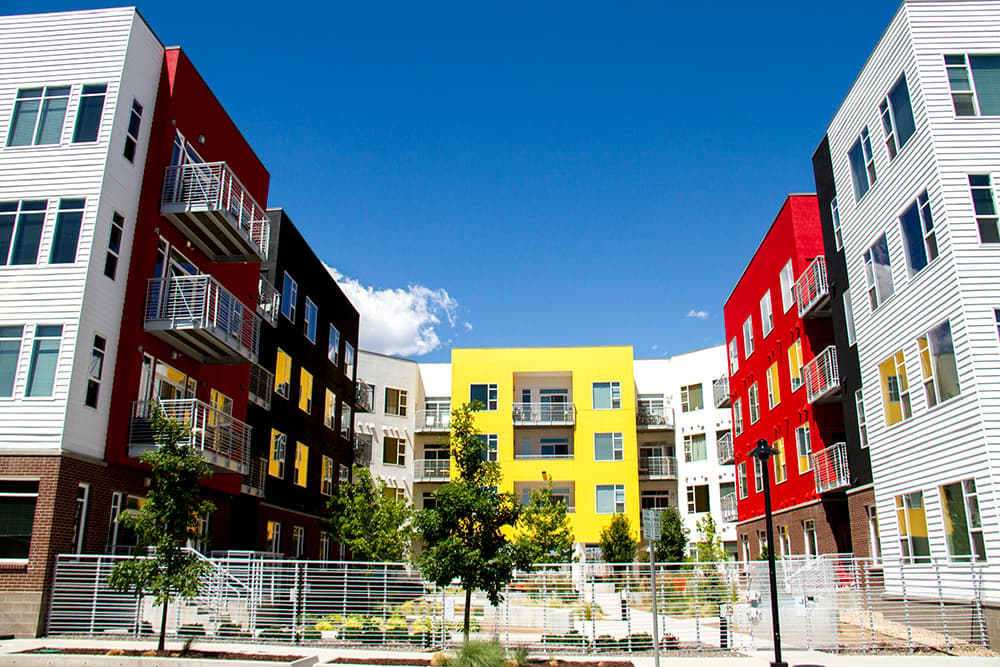Denver's city government may change the affordable housing proposal announced last month. If the revisions are approved, the new program would generate about $10 million less over the next decade than originally expected.
The original plan was expected to generate an average of about $155 million over its first ten years, starting in 2017, according to the city's financial models. So, these potential changes and exemptions would cut about 9 percent from the program.
Some money would be lost because certain types of development would be exempted from fees. However, it's worth noting that a lot of the loss comes from a clarification of some fairly technical details from the original proposal, according to Councilwoman Robin Kniech.
And to be clear, the Denver City Council has not accepted this new proposal. Some of the members talked about the potential changes at a committee meeting on Tuesday, but the council won't decide on the final plan for some time.
First a refresher.
The city's goal is to build or preserve 6,000 affordable housing units.
The overall affordability plan is to collect money from two sources.
Developers of all types of projects, including individual homes, would pay a fee for each square foot of construction.
Separately, property owners will pay more tax on their property. (Check our previous story for details.)
Here's how this new proposal would change the plan.
These new ideas were presented on Tuesday by representatives of Mayor Michael Hancock's office, the Office of Economic Development and Councilwoman Kniech. The proposal comes after the city heard responses from groups including developers, homeowners and affordability advocates.
The change would exempt these types of development from the new fee:
- Redevelopment of existing buildings that "intensifies" its use (aka adaptive reuse)
- Rebuilding after a catastrophe
- Construction of accessory houses
- Residential additions smaller than 400 square feet
Also, town-home projects would pay lower fees than first proposed. That's because the new pitch classifies them as "single family" rather than "multi-family" projects. This was changed because town homes are, in fact, individual houses that are placed side by side. So, this is more of a refinement than a change in policy, according to Kniech.
Another proposed revision would strictly limit how much money could be spent on supportive services; Kniech said the new fund is meant to get people housed.
Lastly, the revision would make it harder for the city council to increase these fees. The city would have to conduct a "feasibility study" to do that.
The changes got mixed reactions.
The council members at the Safety and Well-being Committee asked lots of questions, and some were skeptical about the idea of cutting funding.
"Somehow, we're releasing money ... ," said Councilman Wayne New. "And I can't see how we can accomplish our goal while reducing the money."
Councilwoman Kendra Black said the new plan will better many people's lives, but she said it won't solve the problem.
"I think we all agree that this is a great need, and we all agree that this is not enough money," she said. She asked whether the city could bring in new streams of money – including, maybe, money from marijuana taxes. New also asked about weed money.
Councilwoman Kniech said that the city intentionally went with low fees.
“We took the path consciously of low fees,” she said on Tuesday. “… Because our fees are low, it’s just not possible to build in a strong incentive for building.”
A twelve-story residential building might incur $456,000 in fees or be required to build five affordable units. Most developers will choose to just pay the fee, since it's relatively low, Kniech said.
The council members also heard feedback on the plan in general. Several representatives of developers argued that the new fee would discourage new construction and drive up costs.
Kniech countered that developers already charge as much as the market will sustain. And if prices are already as high as they can go, then developers would simply have to eat the extra costs.
The city had been careful to ensure that developers' projects will still be sustainable, she said.
Correction: This story originally stated that condominium developers would pay lower fees under the revision. In fact, it is town-home developers that would pay less. Town homes are individual houses connected next to each other, so they should not have been charged the higher "multi-family" fee in the first place, according to Kniech.











